Welcome to My Blog!
Before we dive into the content, I’d love for you to join me on my social media platforms where I share more insights, engage with the community, and post updates. Here’s how you can connect with me:
Facebook: https://www.facebook.com/profile.php?id=100072217509763
LinkedIn: https://www.linkedin.com/company/74949059/admin/dashboard/
YouTube:https://www.youtube.com/@tractormanufacturer-lc5qz
TikTok: https://www.tiktok.com/@tractormanufacturer
Now, let’s get started on our journey together. I hope you find the content here insightful, engaging, and valuable.
Table of Contents
Introduction
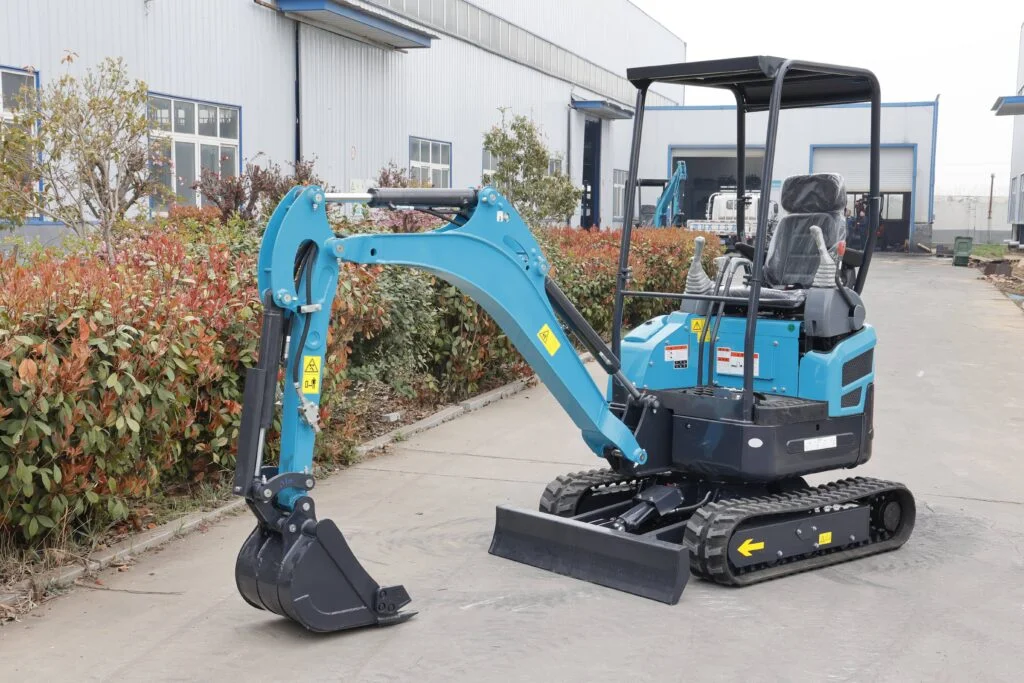
In the world of construction, excavation is a crucial task for both large and small-scale projects. Whether you’re digging trenches for plumbing, landscaping, or light demolition, the tools you choose can significantly impact the efficiency and outcome of the job. One of the most versatile machines for small-scale excavation is the Mini Digger Machine.
A mini digger, also known as a mini excavator, is a compact machine designed to perform the same tasks as its larger counterparts, but in a more compact and maneuverable form. Its small size allows for greater access to tight spaces, making it ideal for residential projects, small construction sites, and even DIY landscaping projects. In this guide, we’ll explore the features, advantages, and applications of mini digger machines, along with key considerations when choosing the right model for your needs.
Why Choose a Mini Digger Machine?
Space Efficiency and Maneuverability
One of the primary reasons for choosing a mini digger machine over a larger excavator is the ability to work in confined spaces. Unlike traditional excavators, mini diggers are designed to be compact and highly maneuverable. This makes them the perfect choice for small or narrow sites where larger equipment would be impractical or even impossible to operate.
Cost-Effective and Fuel Efficient
Mini digger machines are not only more affordable to purchase and maintain but also more fuel-efficient than their larger counterparts. For small-scale projects, this translates into significant cost savings in both the short and long term. With lower fuel consumption and reduced maintenance costs, mini diggers are an economical choice for homeowners, small contractors, and landscapers.
Versatile Performance
Despite their small size, mini digger machines pack a punch when it comes to performance. With various attachments available, such as augers, buckets, and breakers, they can handle a wide range of excavation tasks. This makes them highly versatile, capable of performing tasks ranging from digging and trenching to lifting and even demolition.
Easy to Transport
Mini digger machines are much easier to transport compared to full-sized excavators. Their lighter weight and compact size mean they can be loaded onto a trailer and transported between job sites without the need for special permits or oversized load regulations. This ease of transport makes them particularly appealing to contractors and DIY enthusiasts who frequently move between different sites.
Applications of Mini Digger Machines
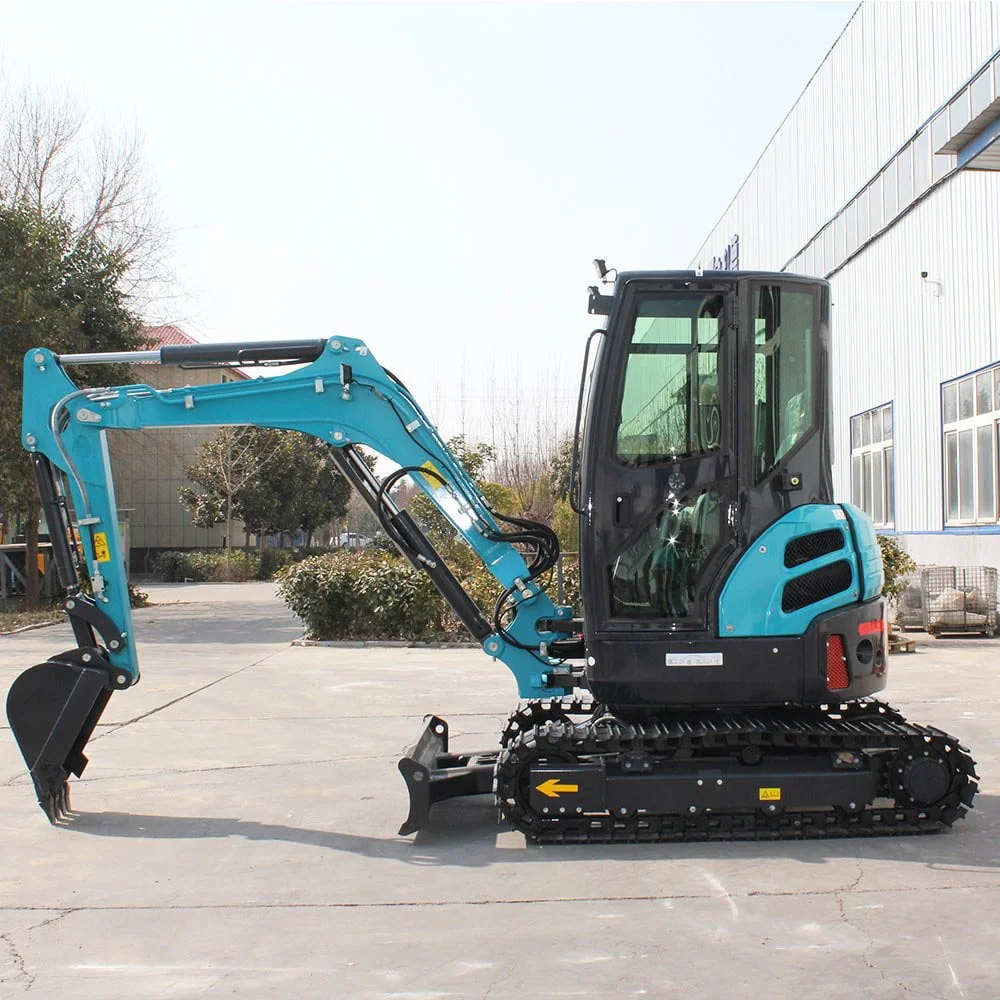

Mini digger machines are versatile tools that are used in a variety of applications. Below are some of the most common uses for mini diggers across different industries:
Landscaping and Garden Projects
Mini diggers are ideal for landscaping projects, whether it’s digging up soil, creating trenches for irrigation systems, or removing old plants and trees. Their compact size allows them to access tight garden spaces, making them indispensable for residential landscapers.
Small-Scale Construction Projects
For smaller construction projects such as foundations for garden walls or small buildings, a mini digger machine is perfect. It can handle digging tasks efficiently while causing minimal disruption to the surrounding environment.
Utility Installation and Trenching
Mini diggers are commonly used for trenching tasks, especially in utility installation projects like laying down water pipes, electrical cables, or sewer lines. Their ability to dig narrow trenches makes them particularly suitable for such tasks.
Demolition and Site Preparation
For light demolition work and site preparation, mini diggers are equipped with attachments such as hydraulic breakers or shears, making them effective in breaking up concrete or dismantling structures.
Agricultural and Farming Use
Farmers use mini digger machines for various tasks, including digging holes for planting, creating irrigation ditches, or digging up soil for planting crops. Their maneuverability and versatility make them perfect for agricultural work in tight or uneven terrain.
Table: Key Features of Different Mini Digger Machines
| Model Type | Weight | Digging Depth | Bucket Capacity | Engine Power | Common Applications |
|---|---|---|---|---|---|
| Compact Mini Digger | 1-2 tons | 1.8-2 meters | 0.03-0.07 cubic meters | 10-20 hp | Landscaping, gardening, small excavation |
| Standard Mini Digger | 2-4 tons | 2-3 meters | 0.05-0.15 cubic meters | 20-40 hp | Construction, trenching, utility work |
| Heavy-Duty Mini Digger | 4-6 tons | 3-4 meters | 0.1-0.3 cubic meters | 40-60 hp | Demolition, heavy excavation, large landscaping |
Key Factors to Consider When Choosing a Mini Digger Machine
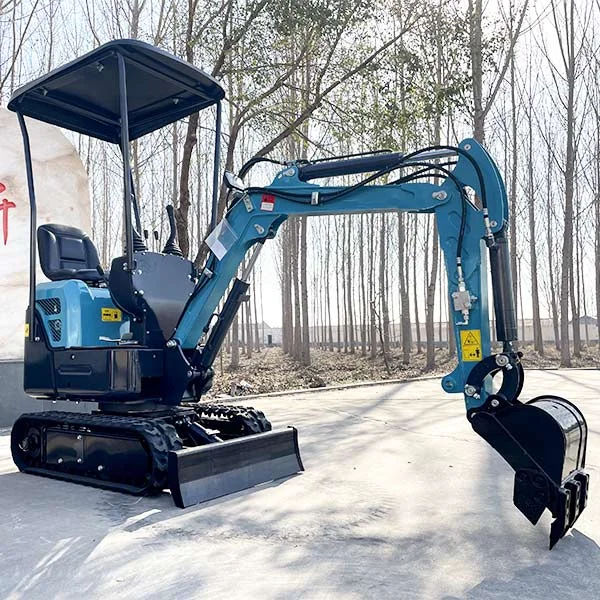
Machine Size and Weight
The first factor to consider is the size and weight of the mini digger machine. Lighter machines are more portable and easier to transport, but they may have limited digging depth and capacity. Conversely, heavier models tend to have more power and digging capacity, but they may be harder to move between job sites.
Digging Depth and Reach
The digging depth and reach of a mini digger machine depend on its model. For tasks like trenching or digging foundations, you’ll need a machine with sufficient digging depth. If your project requires digging deeper than usual, consider a machine that offers an extended reach.
Attachments and Accessories
Mini diggers are compatible with various attachments that can enhance their versatility. When choosing a model, consider the types of attachments you might need, such as augers, buckets, hydraulic breakers, or grapples.
Engine Power and Fuel Efficiency
The engine power of a mini digger affects its digging performance, lifting capacity, and fuel consumption. Choose a model with enough power for your specific tasks, while also considering fuel efficiency to keep operating costs low.
Durability and Maintenance
Look for a mini digger machine known for its durability and low maintenance needs. Regular maintenance is essential for keeping your machine running smoothly, so choose a model with easily accessible parts and reliable service support.
Conclusion
Mini digger machines are an essential tool for small-scale excavation and construction projects. With their compact size, versatility, and cost-efficiency, they can handle a wide range of tasks in tight spaces. Whether you’re a contractor, landscaper, or homeowner with DIY projects, investing in the right mini digger machine can make your excavation tasks easier, faster, and more efficient.
By considering factors such as size, attachments, engine power, and fuel efficiency, you can select the best mini digger machine for your needs. These machines provide excellent value, combining power, maneuverability, and low operating costs, making them a must-have for anyone in the excavation or construction industry.
FAQ
What is the maximum depth a mini digger machine can dig?
The maximum digging depth of a mini digger depends on its model, with most offering depths ranging from 1.8 to 4 meters.
Are mini diggers suitable for large construction projects?
Mini diggers are ideal for small to medium-scale projects. For large-scale construction tasks, you may need a full-sized excavator.
How much weight can a mini digger lift?
The lifting capacity of mini digger machines varies, with most models lifting between 500 kg and 1,500 kg.
What types of attachments can be used with a mini digger machine?
Mini diggers can be equipped with a variety of attachments, including augers, buckets, hydraulic breakers, and grapples, for a wide range of tasks.
Can mini diggers be used in rough terrain?
Yes, mini diggers are designed to work in various terrains, including uneven and sloped ground. Their compact size and track-based mobility make them highly effective in such environments.
How do I maintain a mini digger machine?
Regular maintenance includes checking fluid levels, inspecting hoses and tracks, and cleaning the machine after use. Always follow the manufacturer’s recommended maintenance schedule.
Are mini diggers easy to transport?
Yes, mini diggers are lightweight and compact, making them easy to transport between job sites using standard trailers.





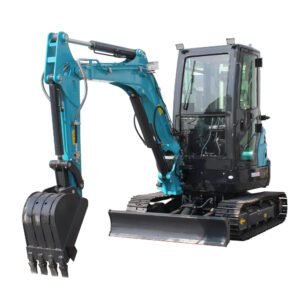
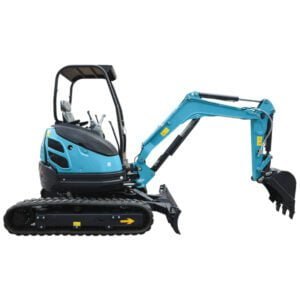
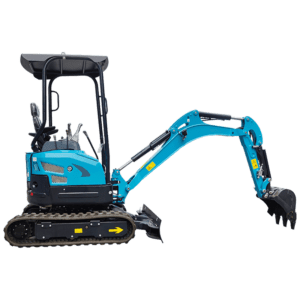

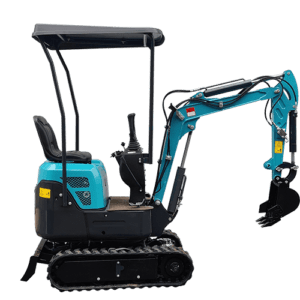

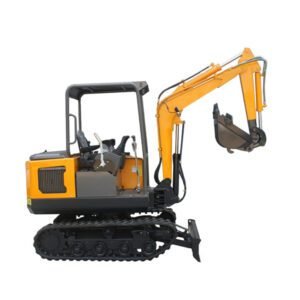

-1.png)